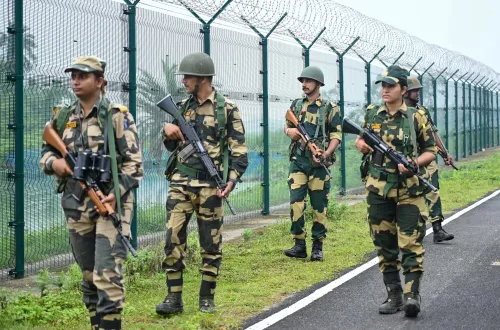Is the Vietnamese Government Planning to Assign the Public Security Ministry to Manage IP Address Identification?

Synopsis
Key Takeaways
- The Vietnamese government is considering a significant cybersecurity reform.
- The Ministry of Public Security may oversee IP address identification.
- Proposed changes focus on data security and protecting vulnerable groups.
- The draft law builds on the 2018 Cybersecurity Law.
- Vietnam is committed to developing a robust AI ecosystem.
Hanoi, Oct 31 (NationPress) The Vietnamese government has proposed that the Ministry of Public Security be responsible for managing Internet Protocol (IP) address identification to enhance data security and cybersecurity, according to a report from local daily VnExpress.
This proposal is included in the draft Law on Cybersecurity that was presented during the current session of the 15th National Assembly (NA) of Vietnam.
Minister of Public Security Luong Tam Quang stated that this draft law builds upon the 2018 Cybersecurity Law, maintaining 21 articles while revising and adding nine others, as reported by Xinhua News Agency.
The revisions are aimed at reinforcing data security, assigning accountability for IP address identification, and setting up frameworks for specialized cybersecurity protection forces.
The NA's Committee on National Defence, Security and External Relations suggested that, alongside children, the draft law should also provide protection for additional vulnerable groups such as the elderly and individuals with limited or diminished civil capacities.
Earlier this week, Vietnam pledged to accelerate the expansion of its artificial intelligence (AI) sector while improving safety, transparency, and accountability in AI governance and development, as reported by the Vietnam News Agency.
During a roundtable event part of the Vietnam International Digital Week (VIDW 2025), Minister of Science and Technology Nguyen Manh Hung committed to creating a human-centric, open, safe, sovereign, collaborative, inclusive, and sustainable AI ecosystem.
He underscored that sustainable AI development must be based on four essential pillars: a robust AI framework, modern AI infrastructure, AI talent, and an AI culture, according to the report.
Vietnam is also dedicated to promoting international collaboration to exchange knowledge and values, support long-term growth, and advocate for the development of open-source AI to improve transparency, collaboration, and innovation, the minister highlighted.
VIDW 2025, taking place in northern Vietnam's Ninh Binh province and the capital city of Hanoi from Monday to Wednesday, showcases policies and frameworks aimed at fostering safe, transparent, and responsible AI governance, along with exhibitions and discussions focused on digital transformation and innovation.










